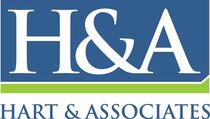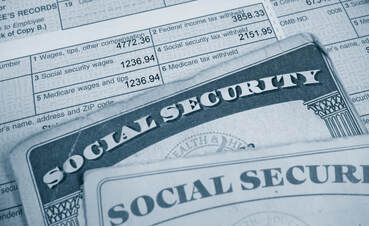How have recent tax changes affected your business this year? Find out more in this tax highlights video.
And if you haven't scheduled your tax appointment yet, we encourage you to do so soon!
The information presented is of a general nature and should not be acted upon without further details and/or professional guidance. For assistance in identifying and utilizing all the tax deductions to which you are entitled, please contact us, your CPA or tax preparer.
Check out the 2019 Fall/Winter edition of our quarterly newsletter. Topics include:
And please don't hesitate to contact us or schedule a consultation if we can be of assistance!
Because so many fraudulent tax returns are filed right after e-filing opens up in January, the IRS requires 1099-MISCs for NEC to be filed by January 31 and will not release refunds for individual income tax returns that include the earned income tax credit until the NEC amounts can be verified.
Thus, the due date for filing 2019 1099-MISC forms for NEC is January 31, 2020. This is also the same due date for mailing the recipient his or her copy of the 1099-MISC. It is not uncommon for a business or rental property owner to have a repairperson go out early in the year, pay him or her less than $600, use his or her services again later in the year, and have the total paid for the year be $600 or more. As a result, the business or landlord may have overlooked getting the needed information from the individual to file the 1099s for the year. Therefore, if you own a business or are a landlord, it is good practice to always have individuals who are not incorporated complete and sign an IRS Form W-9 the first time you engage them and before you pay them. Having a properly completed and signed Form W-9 for all independent contractors and service providers will eliminate any oversights and protect you against IRS penalties and conflicts. If you have been negligent in the past about having the W-9s completed, then it would be a good idea going forward to establish a procedure for getting each non-corporate independent contractor and service provider to fill out a W-9 and return it to you. The government provides IRS Form W-9, Request for Taxpayer Identification Number and Certification, as a means for you to obtain the vendor’s data you’ll need to accurately file the 1099s. It also provides you with verification that you complied with the law in case the vendor gave you incorrect information. We highly recommend that you have potential vendors complete a Form W-9 prior to engaging in business with them. The W-9 is for your use only and is not submitted to the IRS. The penalty for failure to file a required information return due in 2020, such as the 1099-MISC, is $270 per information return. The penalty is reduced to $50 if a correct but late information return is filed no later than the 30th day after the required filing date of January 31, 2020, and it is reduced to $110 for returns filed after the 30th day but no later than August 1, 2020. If you are required to file 250 or more information returns, you must file them electronically. In order to avoid a penalty, copies of the 1099-MISCs you’ve issued for 2019 need to be sent to the IRS by January 31, 2020. The forms must be submitted on magnetic media or on optically scannable forms (OCR forms). Note: Form 1099-MISC is also used to report other types of payments, including rent and royalties. Payments to independent contractors are reported in box 7 of the 1099-MISC, and the dates mentioned in this article apply when box 7 has been used. When the 1099-MISC is used to report income other than that in box 7, the due date to the form’s recipient is January 31, 2020, while the copy to the government is due by February 28, 2020. If you have any questions, please call us or schedule a consultation. Not only do we offer 1099 preparation for submission to the IRS along with recipient copies and file copies for your records, but we assist with Form W-9 requests and management year round. (If you already obtained Forms W-9 from your contractors, feel free to use the 1099 worksheet to provide this office with the information needed to prepare your 1099s.)
This is general information and should not be acted upon without first determining its application to your specific situation. Please contact us, your CPA or tax adviser for additional details.
This is general information and should not be acted upon without first determining its application to your specific situation. Please contact us, your CPA or tax adviser for additional details.
Generally, when individuals have a hobby, they have it because they enjoy it and are not involved in their hobby with the goal of making money. In fact, most hobbies never make money or don’t even create any income, for that matter. Tax law generally does not allow deductions for personal expenses except those allowed as itemized deductions on the 1040 Schedule A, and this also applies to hobby expenses.
Some hobbyists try to get a tax deduction for their hobby expenses by treating their hobby as a trade or a business. By disguising hobbies as a trade or business, and if the hobby expenses exceed the hobby income, they think they can report the difference between hobby income and expenses as a deductible business loss. Not in this case! To curtail hobbies being treated as businesses, the tax code includes rules that do not permit losses for not-for-profit activities such as hobbies. The not-for-profit rules are often referred to as the hobby loss rules. The distinction between a hobby and a trade or business sometimes becomes blurred, and the determination depends upon a series of factors, with no single factor being decisive. All of these factors have to be considered when making the determination:
Because making a determination using these factors is so subjective, the IRS regulations provide that the taxpayer has a presumption of profit motive if an activity shows a profit for any three or more years during a period of five consecutive years. However, if the activity involves breeding, training, showing or racing horses, then the period is two out of seven consecutive years. Making the proper determination is important because of the differences in tax treatment for hobbies versus trades or businesses. If an activity is determined to be a trade or business in which the owner materially participates, then the owner can deduct a loss on his or her tax return, and it is not uncommon for a business to show a loss in the startup years. However, hobbies (not-for-profit activities) have special, unfavorable rules for reporting the income and expenses, which have been exacerbated by the 2017 passage of the Tax Cuts and Jobs Act (tax reform). These rules are:
Example: Marcia has income of $750 from her hobby (a not-for-profit activity) of coin collecting and expenses of $500. So, Marcia must include the $750 on her 1040. But because miscellaneous itemized deductions are currently suspended, she will not be able to deduct her $500 in expenses, leaving the full $750 as taxable income. Another concern for hobbyists who are reporting income from their hobby on their 1040 is whether or not that income is subject to self-employment tax. Luckily, there is an exception for sporadic or one-shot deals and hobbies, which are not subject to self-employment tax. If you have questions related to how the not-for-profit rules may apply to your activity, please contact us to review your situation. We'd be happy to help!
The information presented is of a general nature and should not be acted upon without further details and/or professional guidance. For assistance in identifying and utilizing all the tax deductions to which you are entitled, please contact us, your CPA or tax preparer.
pensation for the role played by the individual shareholder. Otherwise, red flags are raised and your risk of audit increases.
What?? Check out this video to learn more. And if you have any questions or concerns about your exposure to tax liabilities for your S-Corp, please schedule a complimentary consultation to review your situation.
The information presented is of a general nature and should not be acted upon without further details and/or professional guidance. For assistance in identifying and utilizing all the tax deductions to which you are entitled, please contact us, your CPA or tax preparer.
You have your 2018 tax return filed, or perhaps on extension, and now it is time to look forward to the changes that will impact your 2019 return when you file it in 2020.
Keeping up with the constantly changing tax laws can help you get the most benefit out of the laws and minimize your taxes. Many tax parameters, such as the standard deduction, contributions to retirement plans, and tax rates, are annually inflation adjusted, while some tax changes are delayed and take effect in future years. On top of all that, we have Congress considering the retroactive extension of some tax provisions that expired after 2017 as well as proposing new tax legislation. The inflation adjustments shown are not the only items adjusted for inflation. For a full list, see IRS Revenue Procedure 2018-57. At any rate, here are some changes that might affect your 2019 return: Penalty for Not Being Insured he Affordable Care Act required individuals to have health insurance and imposed a “shared responsibility payment” – really a penalty – for those who didn’t comply. The penalty could have been as much as $2,085 for most families. That penalty will no longer apply in 2019 or the foreseeable future. Medical Deductions Further Restricted Unreimbursed medical expenses are allowed as an itemized deduction to the extent they exceed a percentage of a taxpayer’s adjusted gross income (AGI). As part the Affordable Care Act, Congress increased that percentage from 7.5% to 10%. That increase was temporarily rescinded in the most recent tax form. However, starting with the 2019 returns and for the foreseeable years, the AGI medical floor will be 10% of AGI.
Decisions about location and leasing commercial space can be significant factors in determining a business's long-term profitability. Check out September's newsletter for factors to consider as you look for your perfect space.
And if you need any advice on how your business' bottom line will be affected by a lease, please schedule a complimentary consultation.
This is general information and should not be acted upon without first determining its application to your specific situation. Please contact us, your CPA or tax adviser for additional details.
|
AuthorSuccessfully meeting the challenges inherent to new and smaller businesses provides me with a special type of satisfaction. Archives
February 2022
Categories
All
|










 RSS Feed
RSS Feed







